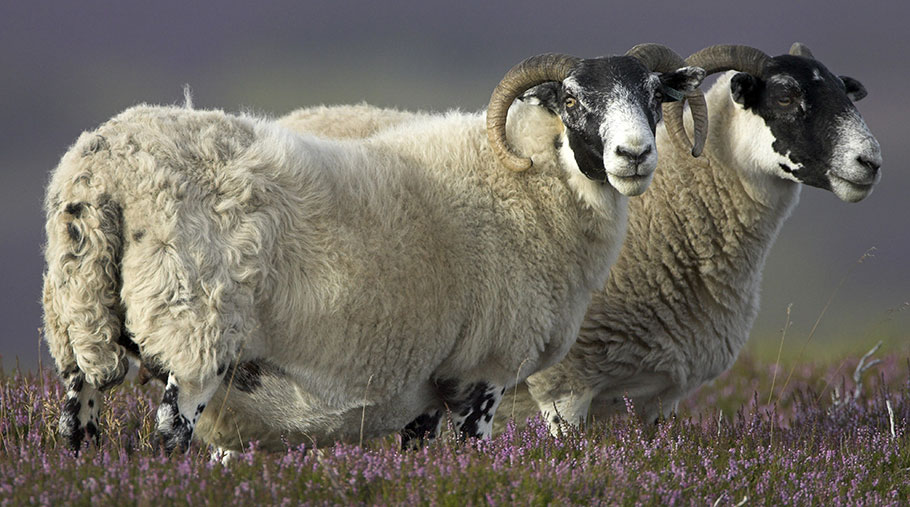Scots government adviser hints at production-linked support
 © FLPA/REX/Shutterstock
© FLPA/REX/Shutterstock Coupled payments, such as headage payments for livestock producers, could play an important role in maintaining farming in the Scottish uplands, a leading policy adviser has suggested.
Addressing a recent Brexit seminar in London, Scotland’s national adviser on agricultural policy, David Barnes, explained that, with more than 80% of the land classified as less favoured, compared with 10-15% in England, the very survival of farming was at stake.
See also: Welsh farmers face end to direct payments by 2025
The uplands delivered many benefits – environmental, social, communal – but faced unique challenges including poor land, remoteness and distance from markets, he said.
“Issues of not just what kind of farming, but will farming survive is a mainstream policy issue for Scotland,” he said.
Mr Barnes insisted the Scottish government has not yet taken a position on retaining or expanding coupled supports for farmers as part of a new post-Brexit policy, but said there were not many options.
“Area based payments work badly in areas where you have very divergent land quality,” he told the Westminster Food and Nutrition forum. “We tried to mitigate it with the current CAP by splitting Scotland into three payment regions, but that means more red tape, more things to inspect.
If you look at the policy tools available, and the strengths and weaknesses of them, then you might conclude that coupled support would be part of the future policy landscape David Barnes, Scotland’s national adviser on agricultural policy
“If you look at the policy tools available, and the strengths and weaknesses of them, then you might conclude that coupled support would be part of the future policy landscape.”
No distortions
Mr Barnes dismissed the idea this would lead to distortions of competition with the rest of the UK.
“I have heard my counterparts from Northern Ireland say they don’t like our coupled payments because a beef producer in Scotland could get up to €100 [£88] per suckler cow, and a Northern Ireland producer does not get that.
“But if you look at the rest of the support landscape, the Northern Ireland producer will be getting over €300/ha [£265/ha] in other payments on every single hectare of his farm. The Scottish suckler producer will probably be getting at most €240/ha [£212/ha] on his very best land, but on his poorest land he could be getting just €13ha [£11].
“Distortions to competition should not be judged on the basis of a single instrument.”
Capping might fit
As for capping BPS payments to larger farmers, as proposed in the Scottish government’s recent Stability and Simplicity consultation, Mr Barnes said there was a growing recognition among farmers, of a need to do things differently post Brexit.
“We have to try out some new things and it is better to pilot them to see if they work and then roll them out. If there is to be no more money from the Treasury, then the only way to fund some new things is to release the money from some existing things.
“Farmers accept that we have to have a progressive agenda and that means we have to release some funds from somewhere.”
What else did we learn about Brexit?
- The new Agriculture Bill from Defra will not necessarily be published before the summer recess (24 July) as previously suggested by Defra secretary Michael Gove. It will be “ready when it is ready” (probably in the autumn).
- Defra is supportive of the idea of rolling over expiring Entry Level Stewardship and Higher Level Stewardship schemes until a new post-Brexit environmental land management scheme is operational, but must clear legal obstacles in Brussels.
- Defra envisages “testing the concept” of a new environmental land management scheme in the first two years after Brexit, but would not start piloting the scheme until year three onwards.
